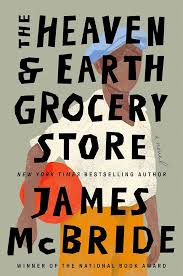Chapter 3: Twelve
byChapter 3: Twelve begins the day after Moshe’s meeting with the Hasid, where he feels invigorated by the recent successes in his life. He is now married to Chona and enjoys financial prosperity, which inspires him to offer Nate, his theater’s cleaner, a sum of money. Despite Moshe’s generosity, Nate turns it down, expressing concern for Moshe’s reckless spending habits. He values stable employment over quick financial gains, reminiscing about his past when he earned well in a dance hall that now serves as a funeral home. This conversation prompts Moshe to reflect on the possibility of opening his theater to African Americans, a community largely excluded from mainstream entertainment at the time.
Chona, Moshe’s wife, who was born in America, is immediately supportive of the idea, brushing off concerns about the potential backlash from the local white community. She encourages Moshe to proceed with his plans, providing her characteristic optimism and confidence. Four weeks later, Moshe takes a bold step by booking Chick Webb, a renowned African American entertainer, for a performance at his theater. This momentous event marks the beginning of the theater’s transformation into a space that not only provides entertainment but also serves as a gathering place for the local African American community. The decision marks a significant departure from the exclusivity of other venues in Pottstown, which had historically catered only to white audiences.
Moshe’s decision to open the doors of his theater to African Americans brings both financial success and social challenges. As the theater flourishes, Moshe’s inclusive venture begins to attract mixed reactions, with some praising his progressive stance and others condemning it. He faces legal battles, threats from city officials, and even disapproval from his synagogue. Despite these challenges, Moshe receives unwavering support from his cousin Isaac and cleverly navigates negotiations with the building owner and local authorities to keep the theater open. Chona’s involvement in local social causes strengthens their resolve to create a space where people of all races could come together and enjoy entertainment without prejudice.
However, as Moshe’s efforts to integrate his theater push him further into conflict with the town’s norms, he is also grappling with personal troubles. Chona’s health takes a rapid downturn, and her deteriorating condition becomes a source of great worry for Moshe. He is desperate to find a cure for her, torn between the rationality of medical treatment and his own superstitions, especially after a recurring dream in which the number twelve plays a significant role. This motif of twelve, associated with luck and completion, has been a guiding influence throughout Moshe’s life, and he clings to it as he seeks a miracle to save his wife.
As Chona’s condition worsens, Moshe’s connection with the African American community in Chicken Hill grows even stronger. The community, which had embraced the theater as a symbol of unity, extends their support to Moshe and Chona during this difficult time. Their affection for Chona, who had become an important figure in their lives, is evident in their gestures of kindness and solidarity. This deep connection underscores the theme of mutual respect and cultural exchange that the theater represents, showing that true community is built on shared humanity rather than racial or social divides.
Despite the mounting pressure of Chona’s illness, Moshe remains resolute in his commitment to stay in Pottstown. He refuses to consider relocating, driven by his belief in the values of inclusivity, justice, and community that he and Chona have worked so hard to build. The chapter reaches a poignant moment when Moshe and Isaac have a reflective conversation about Moshe’s unwavering dedication to Chona and the life they’ve built together. In this emotional confrontation, Moshe’s commitment to his wife and their shared vision for the future shines through. Despite the many challenges they face, Moshe continues to seek a miracle for Chona’s recovery, underscoring his devotion to her and the ideals that have shaped their lives. The chapter concludes by highlighting the intersection of Moshe’s personal struggles with the broader, more profound efforts to bridge cultural divides and bring people together through shared experiences of love, loss, and resilience.
This chapter highlights the complexity of Moshe’s journey—his efforts to reconcile his personal life with his broader social commitments. His pursuit of a better future for Chona and his determination to integrate the community showcase his resilience and vision for a more inclusive world. The struggles and triumphs presented in the chapter reflect the difficult yet rewarding path Moshe treads, where personal sacrifices are made for a greater cause. Through his efforts to heal his wife, Moshe also contributes to the healing of the broader community, showing how interconnected personal well-being and collective progress truly are.


